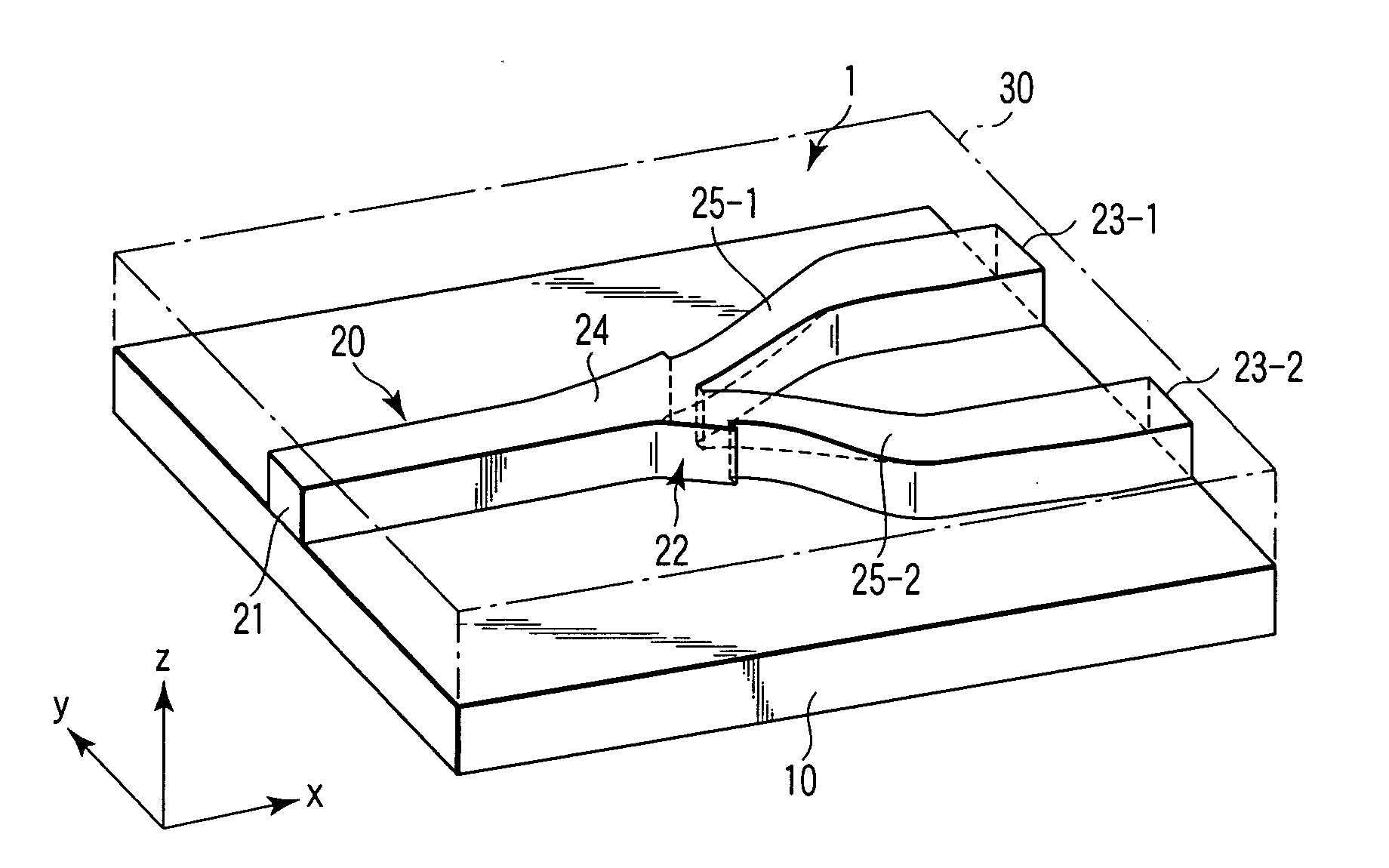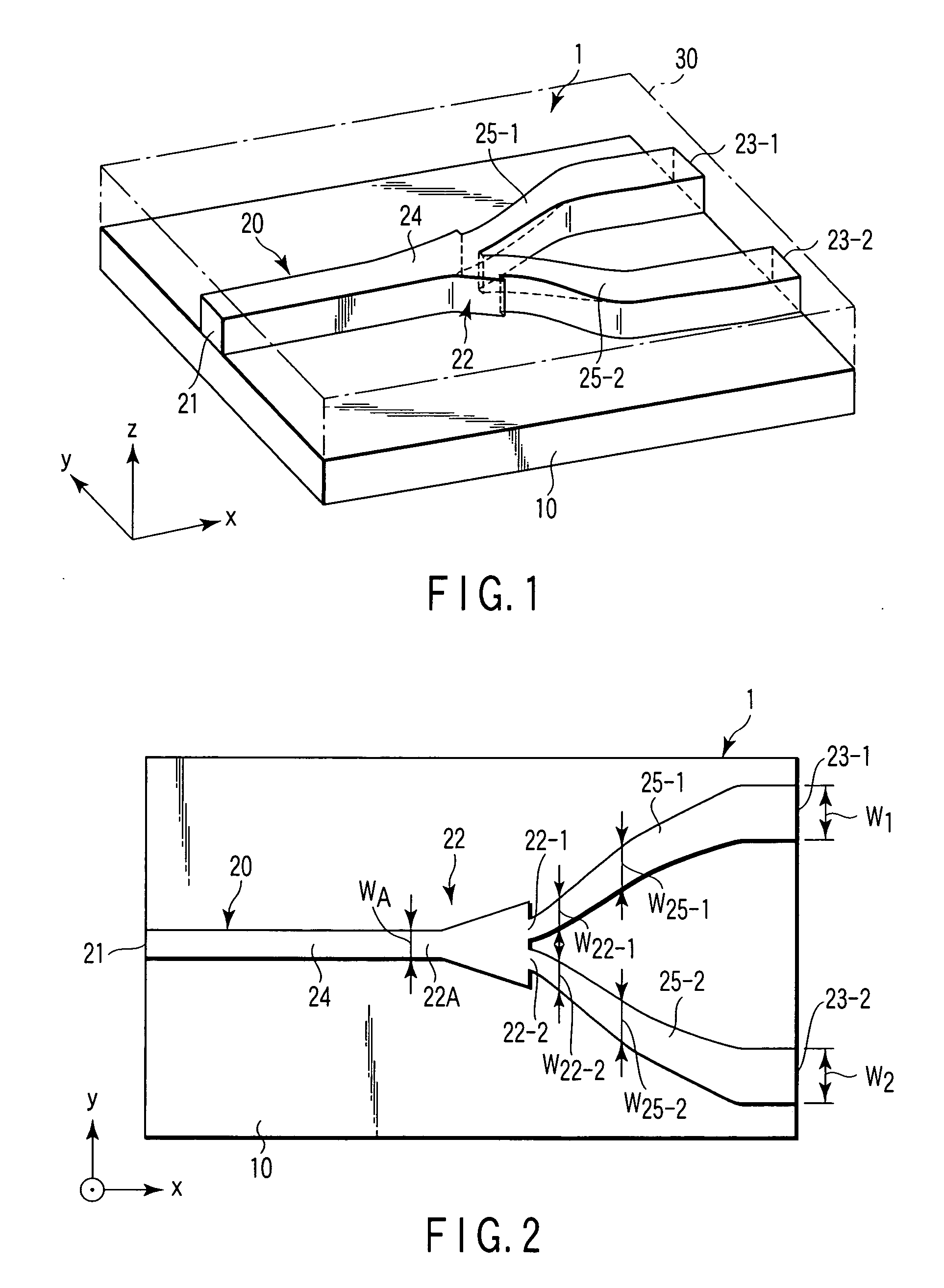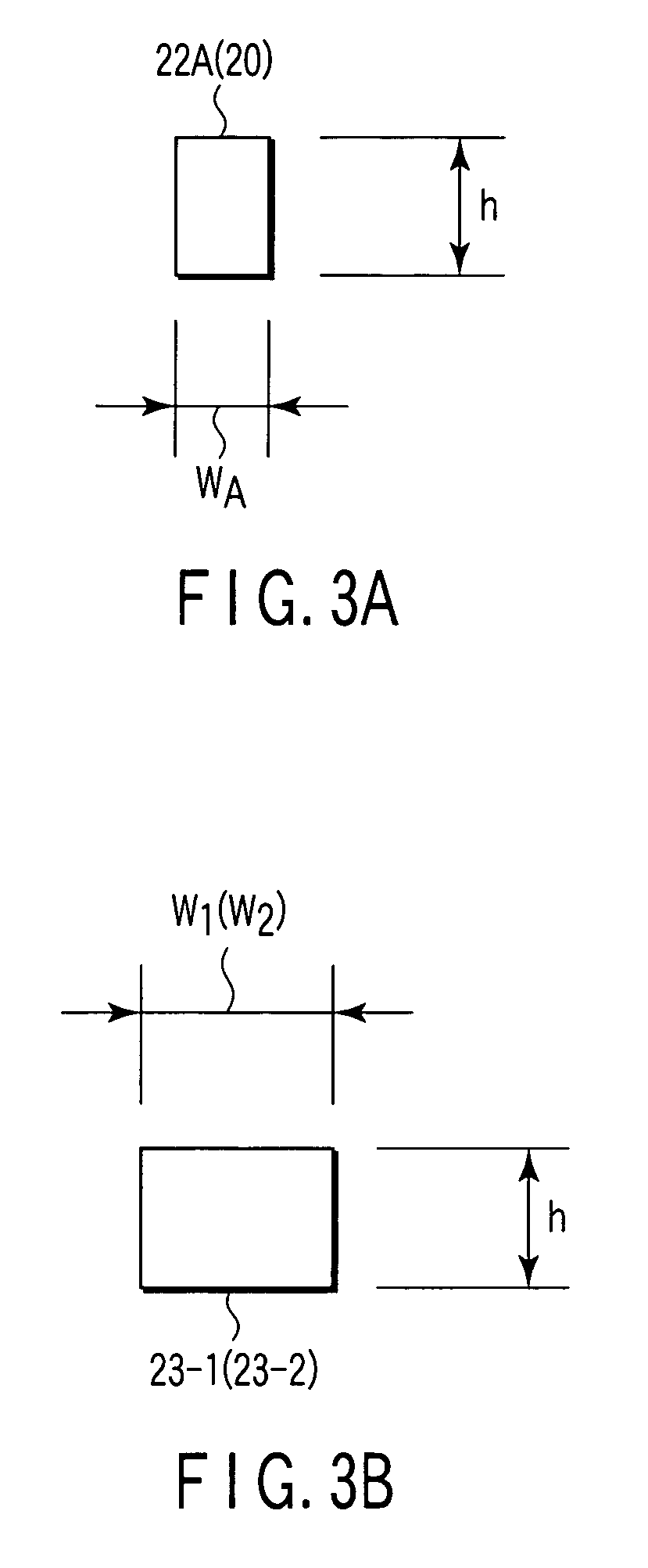Optical branching unit
a branching unit and optical technology, applied in the field of optical branching units, can solve the problems of difficult to completely prevent displacement between the axial lines of the optical waveguide, and achieve the effects of reducing light emission, reducing loss, and high wavelength uniform loss
- Summary
- Abstract
- Description
- Claims
- Application Information
AI Technical Summary
Benefits of technology
Problems solved by technology
Method used
Image
Examples
Embodiment Construction
[0038]Hereinafter embodiments of the invention will be explained in detail with reference to the accompanying drawings.
[0039]FIG. 1 is a schematic illustration explaining an example of an optical branching unit according to an embodiment of the invention.
[0040]As shown in FIG. 1, an optical branching unit 1 has a substrate composed mainly of silicon dioxide (SiO2), and an optical waveguide structure 20 formed by patterning in a predetermined shape on the substrate 10. The space surrounding the optical waveguide structure 20 is covered by a member functioning as a clad layer 30 to make the optical waveguide structure 20 usable as a core. A relative index difference between the core portion (optical waveguide structure 20) and clad area (clad layer 30) is 0.45%.
[0041]The optical waveguide structure 20 includes an input end 21 to input a light beam (an optical signal) supplied through a not-show optical transmission member, such as an optical fiber and an optical branching unit in a pr...
PUM
 Login to View More
Login to View More Abstract
Description
Claims
Application Information
 Login to View More
Login to View More - R&D
- Intellectual Property
- Life Sciences
- Materials
- Tech Scout
- Unparalleled Data Quality
- Higher Quality Content
- 60% Fewer Hallucinations
Browse by: Latest US Patents, China's latest patents, Technical Efficacy Thesaurus, Application Domain, Technology Topic, Popular Technical Reports.
© 2025 PatSnap. All rights reserved.Legal|Privacy policy|Modern Slavery Act Transparency Statement|Sitemap|About US| Contact US: help@patsnap.com



